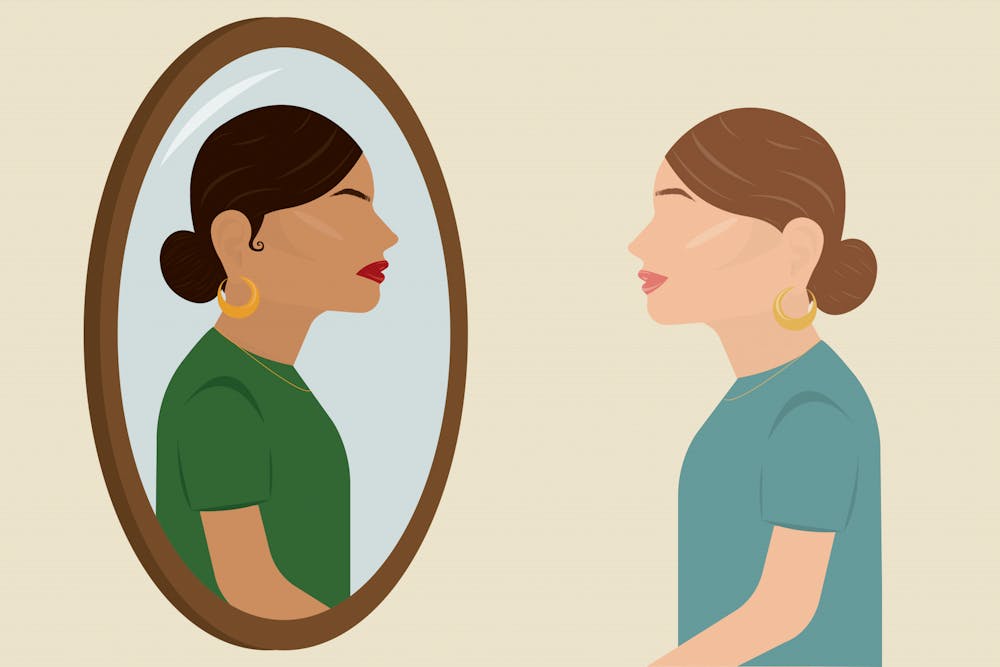Social media platforms like Tiktok and Instagram continued to generate viral style trends over the summer, but many participants are not doing enough to educate themselves about the origins and meanings behind such trends.
For instance, the “clean girl aesthetic" continued to be a top trending look, but social media users are now pointing out ways the aesthetic may be an example of cultural appropriation.
The clean girl aesthetic is achieved by wearing a minimal amount of makeup to give the skin a “dewy” look, slicking one’s hair back and wearing gold jewelry. Although the women who are most commonly seen promoting the look on social media are white, the style has traditionally been worn by women in the Latinx community.
The clean girl aesthetic is a kind of gentrification, according to third-year political science and criminal justice student and member of USC’s Latin American Stuent Organization, Janeth Landeros. She said the trend draws from a Latinx style that has now been ''rebranded'' under a new name.
Taking from other cultures in this way can be harmful because the originators of the style are often forgotten, Landeros said.
"I think it just can be damaging because you're kind of forgetting. I feel like it's more like forgetting who puts it there," Landeros said. "It's ignoring those identities. That's what I feel like, I think ignoring those identities is just a bigger problem."
We have a responsibility to be more mindful of other cultures and groups because we live in a time where information is readily available to us through the internet, according to assistant professor of race and media at USC, Jabari Evans.
However, he also said that credit for a certain style or cultural aspect is sometimes lost when it’s popularized on the internet. One reason this occurs is that social media makes it possible for a culture that was once limited to a single place or group of people to be suddenly accessible to everyone.
“And I think that's what's happening more generally, with social media, is we're seeing things that were largely local become global," Evans said. "But then the influencers that make it more visible then are given the credit, right? And so that's something that's always happened with culture, but I think now with social media, we see it happen real-time."
Another “trend” that appeared on social media pages this summer is waist beads — beaded chains that are worn around a woman’s waist or hips. Today they are commonly used as a decorative accessory or for weight management, but the tradition of waist beads dates back centuries and is culturally significant to many African groups. For many people, waist beads were traditionally worn to express spirituality, femininity, fertility or status.
Even viewing waist beads as a “trend” rather than as a culture can be problematic, according to Titi Abiodun, a public relations officer for USC’s branch of the Pan-African Student Association and a third-year public health student.
Abiodun believes understanding the significance of waist beads can be the difference between cultural appropriation and cultural appreciation.
“Education is key," Abiodun said. "Understand the heritage, understand the difference, the culture and how it has affected people and the stories behind it before you go about just putting it out there on social media."
Buying waist beads from genuine African sellers is important because it ensures that the cultural significance of waist beads is preserved and that customers are not purchasing from sellers who mark up prices and use inauthentic materials, Abiodun said.
Taking steps like this may allow students to enter the fall semester ready to participate in trends and draw inspiration from other cultures in a respectful manner. In fact, Evans said culture exchange is a positive force, as long as it is done mindfully.
"I think it's great that folks are starting to appreciate other cultures and other heritages," Evans said. "I think if we're more appreciative of one another, it creates a more dynamic lived experience and a healthier environment. But if folks are ignorant, as to what they're taking, and where they're taking it from and why they're taking it, then it can be a problem, and it can actually cause more damage than if they never indulged in the first place."

